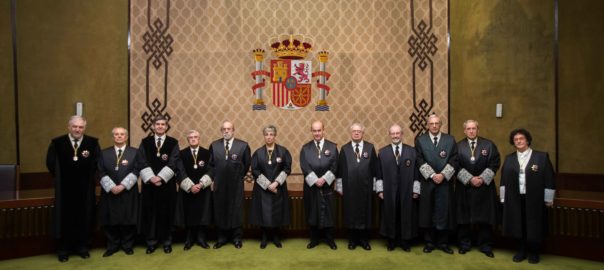02.12.2018 - 09:24
|
Actualització: 02.12.2018 - 10:24
The indefinite hunger strike begun last Saturday by Jordi Sànchez and Jordi Turull will allow them to denounce, right from their prison cell, the flagrant violation of the political prisoners’ basic rights which they have endured for months now ever since Spain’s Supreme Court decided to hold them in pre-trial custody over a year ago.
There is a European precedent which shows the extent to which their rights are being infringed upon: the case of lawmaker and Kurdish leader Selahattin Demirtaş, the co-chair of the Peoples’ Democratic Party (PDP), who has been held on remand in a Turkish prison for over two years. That is the reason why Strasbourg’s European Court of Human Rights (ECHR) has recently ruled against Turkey. By blocking the judicial path that would lead to the European court, now Spain is trying to avoid a similar ruling on the crackdown against Catalonia’s separatist leaders.
Twelve days ago the ECHR ruled that Turkey had violated Demirtaş’ rights to freedom and safety, as well as his right to be brought promptly before a judge, the right to a prompt review of the lawfulness of his arrest and the right to free elections, whilst imposing a restrictive limitation on the Kurdish leader’s rights. Selahattin Demirtaş held on to his seat in the Turkish parliament and was a candidate in the following election, but was unable to take part in the chamber’s activities.
An obvious parallel can be drawn with the Catalan leaders: the ECHR also ruled that holding the Kurdish leader in custody during two crucial election campaigns (the presidential polls and the referendum on Turkey’s constitutional reform) had pursued the predominant ulterior purpose of stifling pluralism and limiting freedom of political debate.
A record number of appeals
What will happen once the case of Catalonia’s political prisoners is eventually seen in Strasbourg? That is what Spain’s Constitutional Court (CC) is preventing us from finding out: their appeals have been tossed away in some drawer. The Spanish court’s doctrine states that any appeal on the grounds of unconstitutionality against pre-trial detention must be resolved within thirty days after being lodged.
The first appeal by the Catalan prisoners —which the Constitutional Court agreed to see— was registered on November 22 last year. That is 374 days ago. It is this blatant sluggishness in seeing their case that has prompted Jordi Sànchez and Jordi Turull to go on an indefinite hunger strike that began last Saturday. The delay tactics of Spain’s partisan Constitutional Court are preventing the Catalan prisoners from turning to the Strasbourg court to denounce Spain’s violation of their basic rights.
The prisoners’ legal teams have filed about twenty appeals on the grounds of unconstitutionality with the CC, which is the highest-ranking court one can appeal to in Spain before being able to take matters with the ECHR. According to lawyer Jordi Pina, the records show that the Constitutional Court typically agrees to see fewer than 1 per cent of such appeals. As it turns out, the court has agreed to see every single appeal filed by the Catalan political prisoners. Every one of them.
Once the CC has seen the matter, for example by dismissing the appeals, the prisoners will be allowed to turn to Strasbourg, a court which considers the European Convention on Human Rights when it comes to ruling on whether a basic right has been infringed upon. One such right is precisely their right to freedom, which the Catalan prisoners have complained it has been trampled on for months.
Spain delays proceedings
The commonplace notion that European justice takes a long time before it sees a case should be nuanced: at least in the cases where Spain was involved, it was Madrid’s Constitutional Court that delayed the proceedings. There have been instances when it has taken the CC up to five years to rule on an appeal which it had agreed to see, only to dismiss it eventually, of course. That is when the journey to Strasbourg begins and it can easily take another two years for the European court to hand down its ruling. Let us examine the timeline of a recent case. Namely, the ruling against Spain for having violated the freedom of expression of Enric Stern and Jaume Roura, who were fined for burning photographs of the king of Spain. The lawsuit was filed in Strasbourg in autumn of 2015. The court agreed to see the case in April 2016. And the verdict came in March this year.


